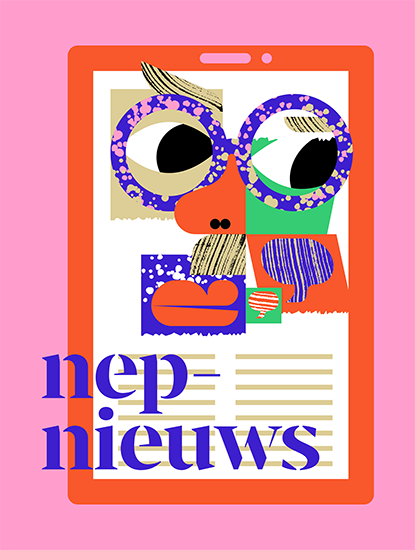When is something considered fake news?
If you encounter information that’s incorrect, that doesn’t automatically make it fake news. You might read a news article that’s largely trustworthy, but where the journalist draws a strange conclusion, for example. That’s not fake news, it’s simply bad journalism.
There are 3 preconditions for calling something fake news:
- The message doesn’t contain truthful information;
- The message was intentionally created and spread to mislead you;
- The person making or spreading it does so with a specific purpose, like winning votes or earning money.
Ask yourself 3 basic questions
When you encounter an article or video of which the contents or source seem questionable, ask yourself these 3 basic questions:
Is it based on facts?
Is the information in the article or video objective? Does it use and mention sources? Real news should only deal with facts. The author should never come up with their own explanation for the facts that is not based on any solid ground. Something being presented as ‘the truth’ doesn’t suddenly make it true.
Who created or spread the message?
Track down who the author of the message is. Look for more information online: does this person work for other media? Do they seem trustworthy? If you can’t find any information when you search for the author’s name, there’s a chance the person isn’t even real. Do the same for the person who shared the message. Even if it’s someone you know and trust, there’s a chance they mistakenly believed the message and shared it because they thought it was reliable.
Why was it made or spread?
Creators of fake news always have a reason. Either they want to earn money, or they want to convince you of a certain (ideological) message. Do you feel like you’re being sold something? Are you being asked for your bank details? Is the message linked to a political stance? Be extra vigilant in these cases.
If you click on an article through social media, the website you land on can earn extra advertisement revenue thanks to your click. You’ll mostly notice this with overly promising or shocking titles in your feed. If the contents don’t really match the title, you’ve been lured in by clickbait.
Tip: use multiple sources
There is tons of information available online. And even well-known and reliable news media can sometimes miss a trick and spread information that isn’t completely correct. That’s why it’s always a good idea to consult multiple sources. That way you get information from various angles, you’ll be able to filter out incorrect information more easily and you’ll stay well-informed.
